Reification and Remembering, On Amnesia, Social Movements, Immigrant Voting Rights, People’s History, Friendship in the Era of Conflict and other stories from Howard Zinn Bookfair Weekend, San Francisco, #Zinnfair
“We are Against Amnesia,” said the call for the 2023 Howard Zinn Book Fair. “But what do we remember?” And why do we have a hard time remembering?
Lessie Benningfield Randle, 109, is one of few living survivors of the 1921 Tulsa race massacre in which 1500 homes were burned and looted by a white mob in a fury, during a sex panic. They flattened her neighborhood of Greenwood. Ms. Randle testified before a House subcommittee in 2021:
Yet, this incident is largely ignored. Why do the powers that be in Tulsa and elsewhere so seem so invested in forgetting about this? I guess that's the eternal question.
These days, we spend a lot of time trying to unpack questions about the past. Can we move forward without remembering or acknowledging what happened before us?
Is reconciliation possible without recognition?
From Berlin to Brooklyn, Durban to San Francisco, this is a question that seems to vex us. In Berlin, we try to come to grips with what happened before. Walking you see small memorials, Stolpersteine (in English: “stumbling stones”), for individual Jews and queers, gypsies and people with disabilities who perished there in the 1930’s and 1940’s. The same cannot be said of the trees in my home states of Georgia and Texas, where lynching was the law of the land, before and even after the second world war. In South Africa, the Anti-Apartheid Movement called for Truth and Reconciliation, opening up doors to acknowledge past crimes. As a corrective, Germany has opened its doors to refugees, recognizing their contributions. In recent years, the US record has been mixed. During different periods, we’ve been more open than others.
Welcoming strangers as friends, this is the stuff of possibility. Friends remind us; they shake up the cobwebs, expanding what we can be. No friendship is the same. The question is: can we recognize what they bring? Can we see their subjectivities? Such are the questions Axel Honneth and the critical theorists asked, wondering about the possibilities of recognition in Germany. His work was part of a generation of German philosophers wondering what kind of philosophy was even possible after Auschwitz. While Richard Rorty turned to pragmatism, Frankfurt theorists concerned themselves with the scent of fascism still in the air, after the end of the second world world. What happens when you wanted socialism, your country murderred Rosa Lukenberg and you got National Socialism? Is redemption possible in Germany? Is it possible in Sarajevo or the US South? At least in Germany, the government acknowledges the past, still paying reparations to many, but not all the survivors, sent to the camps. (Prostitutes and homosexuals faced continued persecution after the war). I feel it in Berlin. The same cannot be said of much of the US, particularly Florida where the governor has banned such forms of inquiry in public school curriculum. Reckoning is never simple, not historically, not today.
Yet, how do we remember? In his 1914 paper, “Remembering, Repeating, and Working Through,” Sigmond Freud suggests that change work begins with the identification of a problem. It concludes with a resolution or rupture. In between is the working through, the dialogue, the exploring. In a way, it's the same with activism. We identify problems, looking for their etiology, the root cause - internal and external – and attempt to work through the issues at hand. Admittedly, some problems - climate change, misogyny, or racism - are harder to address than others. Sometimes this takes a great deal of excavating.
We are not cured because of what we remember, we are cured because we remember. Without remembering what we are working through, we repeat the same problems over and over again, rehashing the past instead of learning from it. Amnesia takes over. The roots of race riots in Tulsa are forgotten. Current debates and bans on critical race theory - a prime example. Activists grapple with questions about targets: is it a shadow, a transference, a part of the past, manifesting in the present that we are chasing or is it something new? We rehash the injury, the same wound, same fight and flight over and over. But what are we all working through?
Why do we forget?
Over and over, these themes, amnesia, remembering and reconciliation overlap. The Howard Zinn Bookfair invites us to explore this people’s history. You can’t be neutral on a moving train, said Zinn in his movement memoir. Talking about amnesia, the converse is remembering. When we talk about remembering, for many of us, the method is oral history, as Lynn Lewis points out in her book, Love and Collective Resistance: Lessons from the Picture the Homeless Oral History Project. Oral histories challenge official accounts, which is a good thing. We observe, listen, and learn a bit of history. There are ountless stories to discover. On a week when Henry Kissinger finally shuffled off, its incumbent on us to remember, to unpack what happened.
We can be part of living history, not some dusty book but a person with a story. Oral histories are useful for integrating community and social history as means of:
a) obtaining information where little evidence exists;
b) revising history;
c) protecting against loss of history; and
d) collecting data to paint a picture of biopsychosocial functioning (Martin 1996, 8).
Early in the week, one of my students in my trauma class talked about her parents coming to the US from Mexico. But they won’t talk about why they came? We don’t know what compelled them to leave. These are the kinds of questions we need to be asking. My father in law says the same things about his parents who left Belarus between the wars, to make new lives for themselves here. They never talked about why they came, and what compelled them to leave. What happened? Thats what I wanted to know.
Yet, why amnesia? Amnesia, its everywhere. You see it in fervent push to scrub Florida’s school curriculmn of any memory of past sins, of official denial of the Tulsa massacre, ot the Tiananmen Square massacre in China, of families around immigration, of sexual assault in Berlin after the war, when it was open season on women’s bodies. The answer - generations of silence from women who felt conflicted and complicit in the crimes which they endured as the recent war ended and the oldest war, the war on women, continued.
In Trauma and Recovery, Judith Herman suggests that the secret history of sexual assault is built on a foundation of amnesia. Nothing happened. Freud rejected seduction theory implicating much of middle class Vienna. Trump says that woman was not his type. He never saw her before. “I can’t recall” says Reagan; Kissinger didn’t realize, amnesia and denial become official policy.
It is a topic famously explored by one of the century’s most compelling writers, Gabriel Garcia Marquez. Before his final years of living with dementia, Marquez wrote about notions of political amnesia. The theme runs throughout 100 Years of Solitude. A J Lees: writes: “Garcia Marquez’s descriptions of memory loss came largely from his observations of several family members suffering with Alzheimer’s dementia. His account of ‘the loss of the name and notion of things’ in One Hundred Years of Solitude” highlights competing narratives between so called patriotic laborers and murderous factory owners, hell bent on crushing a strike. After the striking workers are slaughterred, newspapers report that workers ended their strike amicably, people’s history vs official history, the two concepts duel it out through time. For Marquez the “benefits and disadvantages of forgetting” are many.
All reification is forgetting. Adorno said it, recognizing that peculiar dynamic which
takes shape when, “a relation between people takes on the character of a thing” as Lukács put it in History and Class Consciousness. When people and concepts become things, its easier to forget. We become rigid. Our connection to the earth, to the soil as well as each other become tenuous, consigned to oblivion.
Alex Honneth posits reification is “forgetfulness of recognition”, losing touch with oneself, and others and by extension, the world (JÜTTEN, nd).
“You can’t think without memory. And it matters a great deal what you remember,” said Harold Bloom to Charlie Rose. “And if you what you remember is mediocre stuff you are not going to be able to think very well,” Bloom continued. “If we as a nation stop thinking well, we cease to be a democracy.”
And that was years before Trump, when we seemed to forget we were a democracy, that our grandparents sacrificed everything to fight fascism.
The problem, of course, with forgetting, is we fail to see each other. We fail to remember, we once traveled over a border to get here. Ted Cruz condemns those coming illegally. From Dorchester England to the USA, there was nothing legal about my family’s journey from the UK, nothing illegal either.
We forget our common humanity, our common struggles, our struggles to be part of this democracy.
Of course, selective memory also has a be a way of justifying conflict with entrenched points of view. One still sees this dynamics in the Balkans with memories of conflicts dating back ages, that mobilize conflict, justifying an eyes for eye approach, more retalation instead of reconciliation. Writing about the ideological uses of history and memory in Radovan Karadzic trial, Nick Hawton notes:
The same dynamic seems to be taking place in Israel Gaza Conflict. “You are dealing with two traumatized peoples,” said Gershom Gorenberg, a historian and author, quoted in the NY Times. The trauma of the present is linked to multigenerational trauma. People can’t even agree on events, much less what the events mean.”
Yet, what is our common history? Is there room to remember and forgive, to forge a new path, based friendship and possibility, acknowledging our subjectivities, and struggles, not more jails or wars? While anything but perfect, the stories of truth and reconciliation from Durban to Berlin suggest we can remember; we can atone for past sins. It begins with combatting amnesia and remembering. Still a blood thirst, yearnings for revenge, the obstacles to rememberring persist, their conflict with reconciliation omnipresent.
Non Citizen Voting
Joining me on the panel at the bookfair was my old Lower East Side Collective comrad, Ron Hayduk, a professor of political science at San Francisco State University and author of Democracy for All, along with his colleagues Annette Wong, of the Chinese for Affirmative Action (CAA) and Anthony Pahnke, of San Francisco State University, each adding to the conversation. Hayduk, Pahnke, and thousands of faculty at CAL state universities went out on strike two days later. We’d spend the afternoon exploring these ideas in relation to their work on immigrant voting past, present and future. For Ron, battles over immigration serve as a microcosim of larger cultural schisms over amnesia and oppression, struggles over voting, nativism, know nothingism, and questions about citizenship and democracy itself. Between 1776 and 1926, a number of states allowed non citizens to vote, said Ron beginning his talk. Immigrants injected new ideas into decision making, advancing the power of immigrants of workers, forming unions, waging strikes, participating in movements, and forming parties that promoted the needs of working people. In subsequent years, these advances faced rollbacks, particularly during periods of nativism, with variations of replacement theory fueling fears of replacement, non whites viewed as threats to dominatnt elites, followed by Chinese Exclusion acts, National Origins acts of 1920’s, narrowing the possibilities for robust and progressive solutions. Over time, the powers that be buried the practice, with paupers and prostitutes barred. WWI hysteria that galvanized still more opposition as well as questions about legal vs illegal imigration and who were the “real” Americans? Thankfully Black power, Asian, and Chicano movements helped open the doors to imigrants from non western countries, concluded Hayduk. They challenged old heirarchies. Their advances inviting opposition in verious forms, and still more rollbacks on voting rights and lawsuits, their own microscms of broader fights, around rights and services for immigrants.
Still, some are expanding these rights concluded Hayduk; others, cracking down on them, pushing white minority rule. Rememberring this history is a means to vanquiash these opposition movements said Hayduk.
Annette Wong followed exploring the history of anti immigration law in California, particularly after Prop. 187, the statewide ballot propositon passed in 1994. In response, progressives imitiated non citizen voting Francisco. Opponents said this is not feasible. Still, the idea did not die. It kept popping up, says Wong, pointing out that in 2016 it passed by 54%. Broad and unspecific, Wong advised we think about citizenship as a social construct, with understandings shifting. Shape new definitions. For a long time, citizenship was more malleable. But its always been contested. From the early day, laws identify the country of white men; Black people only became citizens after the Civil War.
California went from worst to first from 1994 to now, said Anthony Pahnke, the most anti to most pro immigration state. With mass rallies for imigration in 2006, the right wing knows they lost california. But Texas and Florida are next. And they are locked in to hold them, doing everything to them from turning purple, turning from history to our current moment, with its backlashes around migration.
“We used to call it, ‘white trash up for grabs,’” said Lynn Lewis referring to efforts to attract working class white people back into progressive circles, inviting their attention, engaging them, as oath keepers have be able to do in recent years. Re build the Rainbow Coalition, said Hayduk. Many of the January 6th activists were disenchanted Obama voters afterall. Maybe we need a new truth and reconciliation, Lewis wonderred. All afternoon we talked about it the rightward turn of the electorate and ways to fight back against the forgetting.
Prescript
The topic was with me as I left on Friday morning before the bookfair; it’d been bubbling through my mind all year long, from Berlin to the Balkins and back. It was with me walking down Hoyt street through holy Brooklyn past Al's with the teenager on the way to school, parting ways at the subway, descending into the underground, to JFK, westward to SFO to the sunny city, and onto the BART train to the Civic Center. Its always a jolt of energy arriving, seeing the familiar sky and people, on Market Street, meandering South of Market, to the Endup, the legendary 1970’s club on Howard, past junkies asleep on the sidewalk, thinking about World AIDS day, of Tim, of my friends, stories about everyone who was here, my clients on Market Street, before there was treatment. Thats almost a poem, says the teenager. They greet me via text, when I arrive, thinking of you and Fred. our own legend. Its world aids day, they say. I know, I reply, recalling our day there, two years prior.. Up I walk, past the harm reduction center, via a porn shop or two, a few liquor stories, a massage parlor, a few cheap hotels, to O’farrell, looking about, feeling it, remembering that old feeling, amidst the hussles, between this life and that, this sensation, lulling at us, losing, finding, feeling, yearning, high, low, meeting a friend after a midnight shift years ago, seeing it, past the bars, through Chinatown, thinking about the Grant, an autistic kid from Chinatown Gerdy and I knew years ago here, watching him grow up in this holy city, where I found something after college, made a few friends, and memory burn along the way. Up and down, around, through the theater district to past Dashell Hammet way, off 891 Post Street #401, by the Owl Tree, a, Dark-wood bar with red carpeting & black leather booths. I wanna stop inside, wondering if Hammet would be there, thinking about his point, “Most things in San Francisco can be bought or taken.” Thats a messy. He knew it well, conjuring a foggy film noir of a city. I keep walking to Broadway, through North Beach, by Cafe Trieste, 601 Vallejo St, where Harold met with the other poets. And down to City Lights. Lawrence is off to parts unknow. His old bookstore and its poetry room remain, full of stories.
A Guiness meets me at Vesuvio, across the street, for a moment of thinking, a pause looking out the window. My comrad Ron was with Doug at Trieste, our old buddy, before dropping by for a pint of his own. After a couple, we’re off to the Castro, to meet with Dion on Noe.We talk and talk and talk. Looking about Dions, I run into a pair of eyes, who found a place here, a bonded pair. He’s been here forever, his city still full of boyfriends and stories, one after another, each fueling still more poems, disappearances, and resurrections, Mark gone all these years, Kevin appearing, suicide there, an overdose here. I thought fentanyl got him, I said when Dion told us he was joining us for dinner, everyone chasing something. He’s back, replied Dion, supping Sangrilla sitting with Kevin, looking like Lazeous. And we walk into the night, past the homeless, like Tom o'Bedlam:
“From the hag and hungry goblin
That into rags would rend ye,
The spirit that stands by the naked man.”
I guess that spirit always with us, I think walking along the beach the next morning with Ron, reading Populist manifesto and other stories:
“Poets, come out of your closets,
Open your windows, open your doors,
You have been holed-up too long” declared Lawrence.
“No more chanting Hare Krishna
It certainly feels that way, running around San Francisco and Pacifica, talking about Henry Miller and Marx, cruising down to Half Moon Bay watching the waves and the holy surfers, Next stop Greenwich Village, hiking through the woods watching the trees lined along the coastlines at Fitzgerald Marine Reserve, north of Pillar Point Harbor and Mavericks, off Moss Beach, looking at the cypress from Granada to Moss Beach Distillery, with its ghosts, dashing between Pidgeon Point Lighthouse, cameroons flying across the water, learning from the road, old voices, doomed friends chasing me by the lighthouse, and back to Valencia street, where James was getting everyone ready for #zinnfair, reading a poem.
“We vote every day,” he reminded us. So does James Tracy:
“See you at the Zinnfair,” he tells us.
And so we did on Sunday. An all day affair, on Valencia Street, I prepped and moved from session to session, some on poetry, others on oral history, thinking about the ways our ideas intersect through movements, one after the next, mixing and shaking, shifting, ever morphing, expanding and contacting within a history of ideas. A few favorites, a poem about a whale by Chaun Webster, a conversation with Cynthia Kaufman about the climate movement and socialist review, with Lynn Lewis who signed her book for me, before our session, followed by another on “INTERSECTIONAL CLASS STRUGGLE IN US HISTORY with Charmaine Chua, Michael Beyea Reagan, Gabriel Winant” And “ORAL HISTORY AS A TOOL OF RESISTANCE with Lynn Lewis, Malkia Devich-Cyril,Hilary Moore” The last of the day, “ANARCHY, WAR AND SEXUAL LIBERATION: THE LIFE & PROFESSIONS OF DR. ALEX COMFORT, AUTHOR OF "THE JOY OF SEX. with Eric Laursen.” I’ve know Eric for years now, watching his story grow from those days when we had a reading group with Andrej and Graeber years and years ago, before he finished his Social Security book, finding connections between Orwell and Comfort, a debate for the ages, that inspired a new biography of its own. I am ever fascinated to see what ideas are growing from his anarchist, insurrectionary imagination.
It was one of the the best afternoons at the #zinnfests ever, one conversation after another, with ron and lynn and erik and alex and dion and james and lynn and intersectional class struggle and the joy of sex, on and on.
Finishing, the suns going down. I walk back through Mission Delores Park, meeting up with Dion on Noe, just as I did when I was in college, for a few more stories about boyfriends past, present, drugs, hopes, childhood with mom decades prior, survival, parents, Vietnam, homophobia, on and on from Carson M and Columbus Ga through years and years of conversations. A bite on Castro and a ride to the airport. I guess i’ll have to stop by Twin Peaks, says Dion as we depart. I wish I could join us. But I have a red eye to catch.
Sources,
Bloom, Harold. https://charlierose.com/videos/5604
JÜTTEN, T. What is Reification? A Critique of Axel Honneth https://philarchive.org/archive/JTTWIR#:~:text=Honneth%20concludes%20that%20reification%20is,relationship%20both%20genetically%20and%20categorially.
Burch, 2023. https://www.nytimes.com/2023/11/07/us/tulsa-race-massacre-lawsuit-oklahoma-supreme-court.html
https://www.nytimes.com/2023/11/20/world/middleeast/israelis-palestinians-conflict.html
Hawtonm N. 2009. Conflicting Truths: The Bosnian WarWith the trial of the former Bosnian Serb President Radovan Karadzic due to begin, Nick Hawton reflects on his time reporting in a region where history is still used to justify war. History Today. 59(8) August. https://www.historytoday.com/archive/conflicting-truths-bosnian-war
Lees, AJ. Gabriel Garcia Marquez, the greatest of the amnesia writers https://www.ncbi.nlm.nih.gov/pmc/articles/PMC9762933/
Lukács. 1923. History and Class Consciousness.
Neiman, Susan, 2019. Learning from the Germans. New York: Penguin.
Martin, R. 1995. Oral History and Social Work. SAGE Publications

































































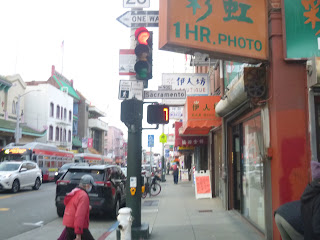






























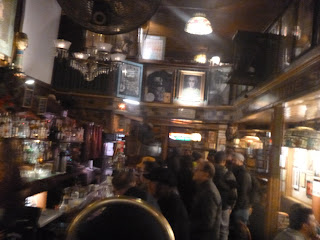
















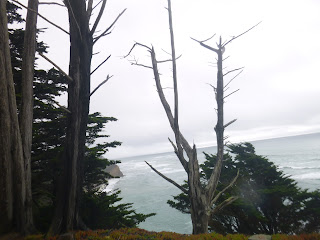





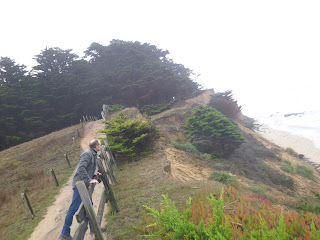










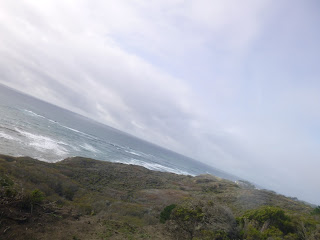

















































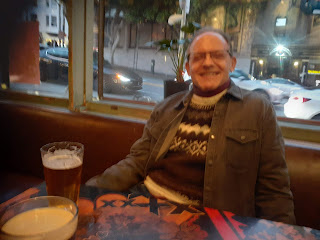







No comments:
Post a Comment